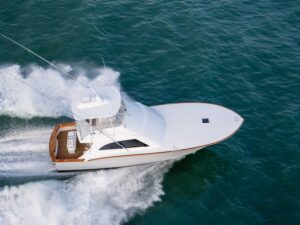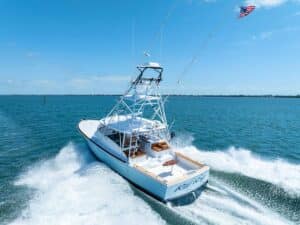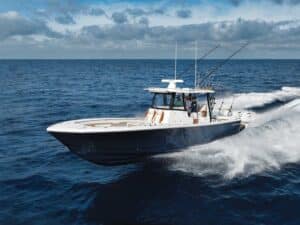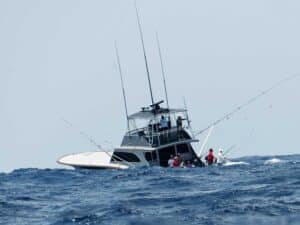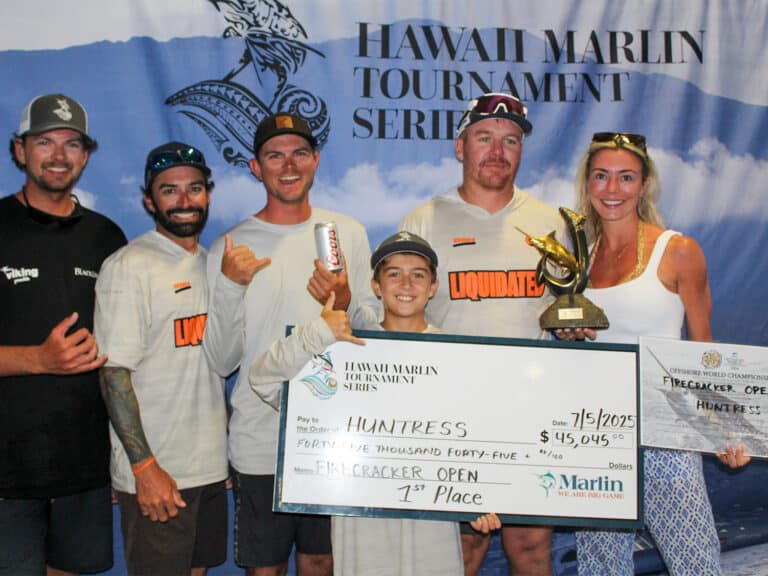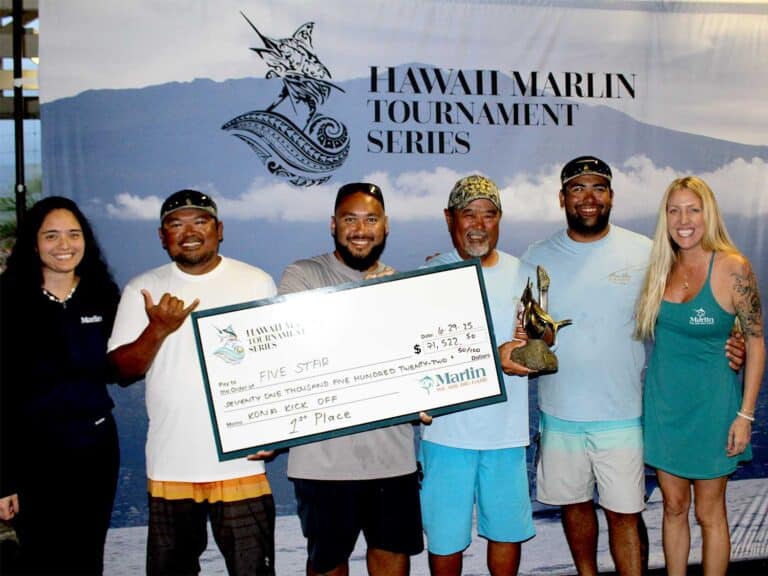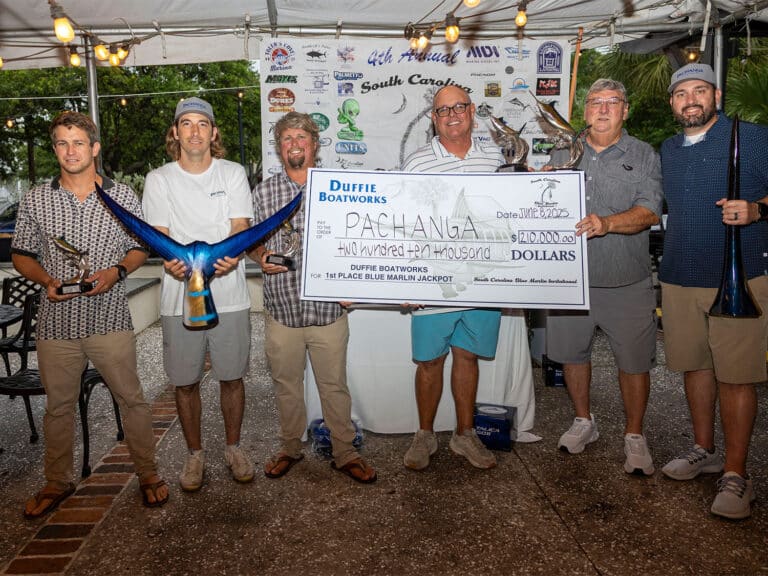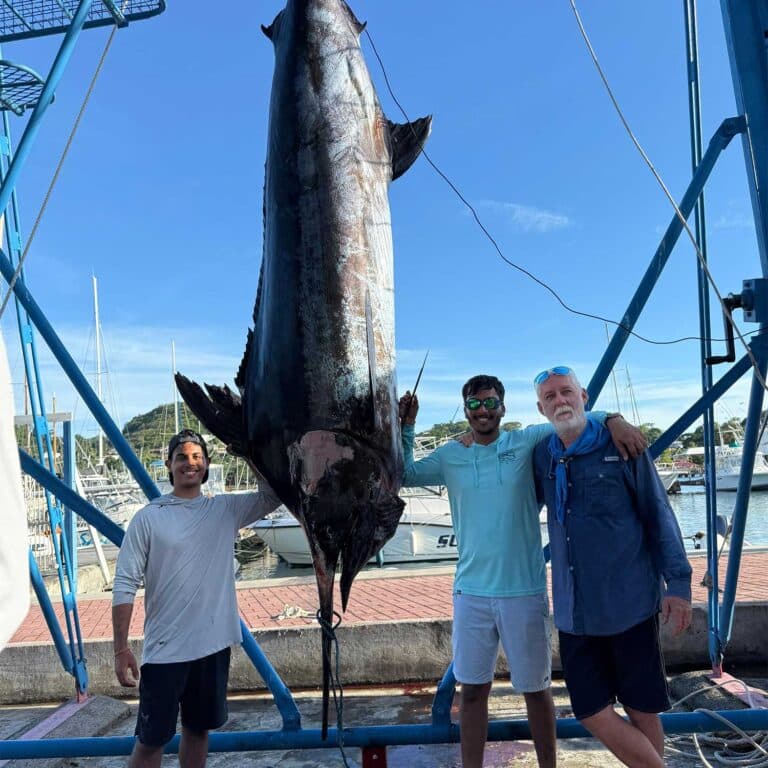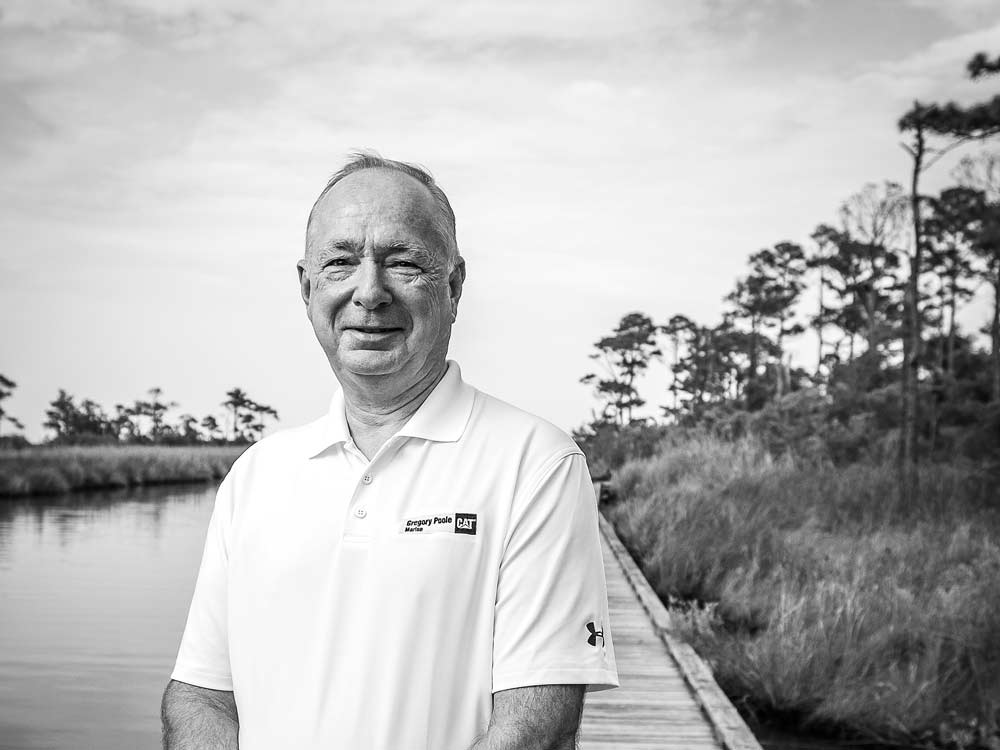
During his tenure at Gregory Poole Caterpillar, Dan Webb has witnessed major changes in about every aspect of the diesel power industry over the past 33 years. A graduate of North Carolina State University, Webb manages the marine division for Gregory Poole throughout the eastern part of the Tarheel state. He also founded GPLink — a telematic remote monitoring and location system — and manages that business as well. In his spare time, he’s rebuilding a 1981 Hatteras. We talked about old boats, new technology and more, just prior to the arrival of Hurricane Florence on his doorstep in Morehead City, North Carolina.
Marlin: You became a grandfather for the first time. Congratulations.
Thanks! My oldest daughter just had a baby girl, and everyone is doing fine. It’s funny, my granddaughter was born in the same hospital in High Point, North Carolina, that I was.
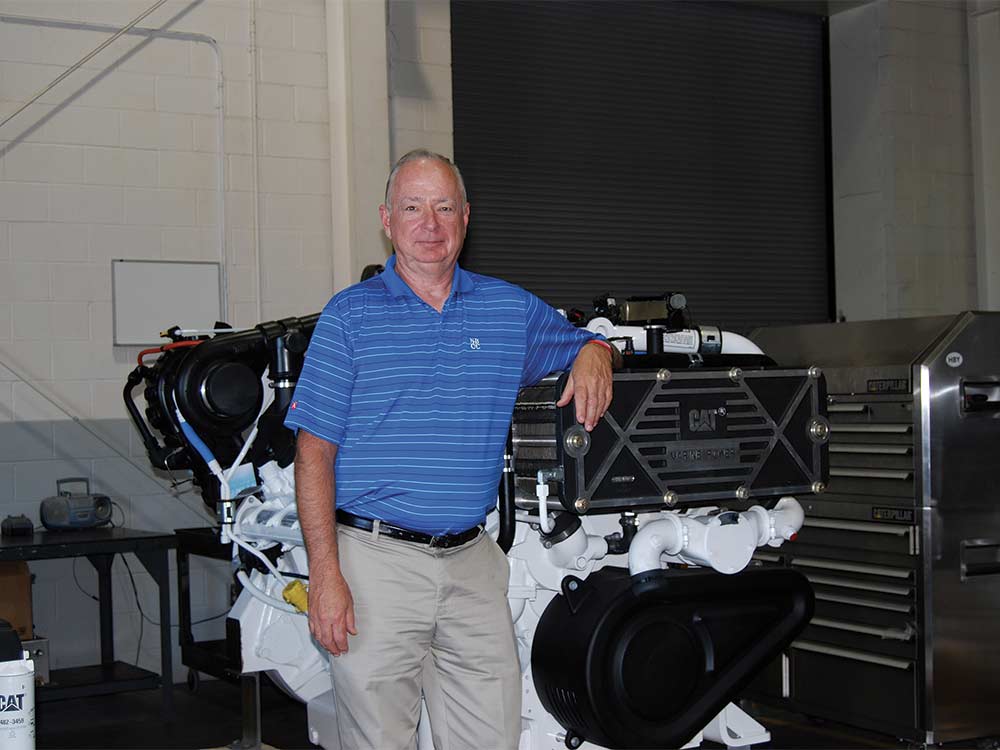
M: Caterpillar has always been a popular engine choice for the Carolina boatbuilders. Why is there such a close relationship?
Back in the 1990s, the engine technology was changing, and the weight started to become reasonable for the boats. At around the same time, the builders were maturing and the historically core group really started to gain momentum. Back then, we had Buddy Davis building quite a few boats. Hatteras, Rampage and Tiara were here, plus all of the custom builders in the Outer Banks. When we transitioned from the 671s and two-cycle engines to the 3412s and four-cycles, we had the right product for that market, and we were able to grow together.
M: What are the biggest changes you’ve seen in marine propulsion in the past three decades?
The biggest was when we shifted from two-cycle to four-cycle engines. Pretty much everything else since then has just been tinkering with things like fuel delivery, turbos and other systems, but that was the big transition in technology. Today, there are builders looking at hybrid and electric power, water-jet drives, and just different ways to actually move the boat through the water.
M: What is your connection with GPLink?
I started the company as a remote monitoring system for Caterpillar, but then we realized that all the engine manufacturers wanted it, so we designed it to work with any brand. We started in yachting and sport fishing, but then it grew into commercial applications. A yacht owner uses GPLink because he wants to see the location of his boat, but for a commercial fleet manager, they need to monitor operating habits and for maintenance. They run a lot of hours and burn a lot of fuel, so if you can save them 1 to 3 percent a year in fuel, those are big savings.
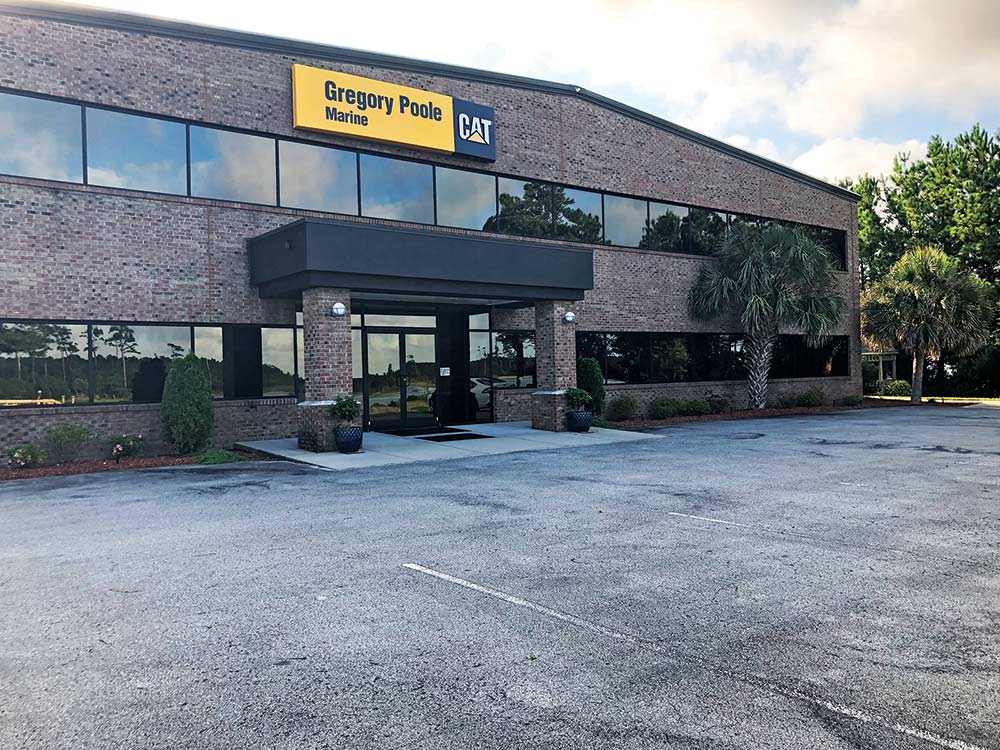
M: You own a 37-year-old 43-foot Hatteras. Why do we have such a love affair with old boats?
I think they have character. You have to dig into older boats as you work on stuff, and you really get to know them when you do that. With my boat, I’ve stuck my head into every hole and I know every square inch, inside and out. Then they’re hard to sell because you have so much of yourself invested in them.
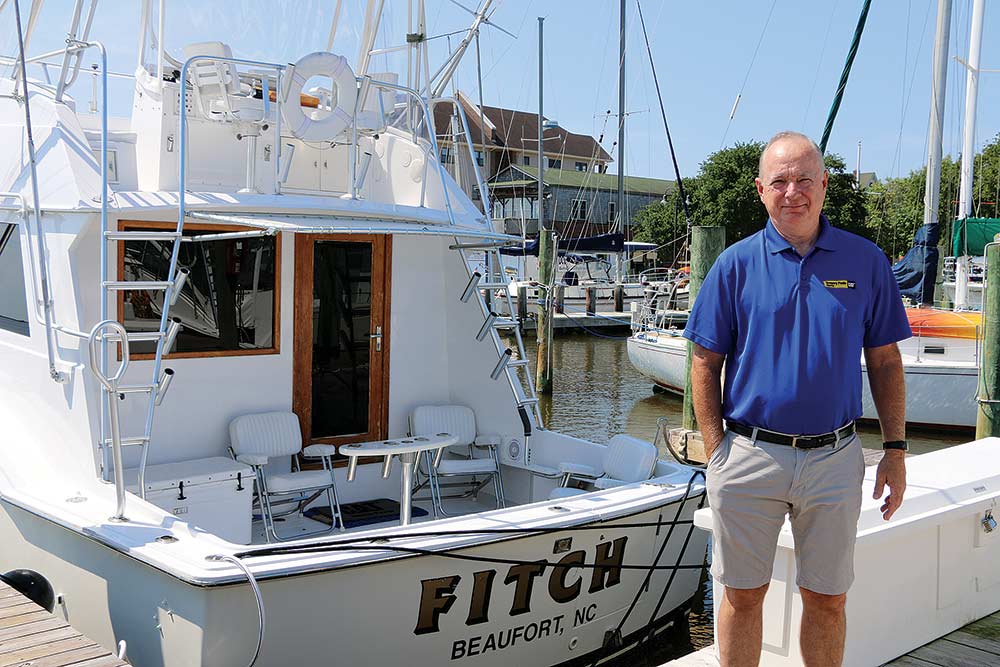
M:Why did you name your boat Fitch?
We were talking about what we should name the boat, and nobody could agree on one. Fitch was our recently deceased and much-loved yellow lab that was with us for 14 years, and that was the only name we could all agree on.
I found the boat in Marathon, Florida, in 2010. I’ve been around the water all my life, and it was time to move up to a little larger boat that I could enjoy with my daughters, where we could fish but also spend some family time. I was very familiar with the Hatteras brand and knew the 43 was a good one. We’ve painted the exterior, completely stripped and redone the interior and installed a pair of C7.1s. She runs amazingly well.
M: What’s your favorite kind of fishing?
I used to love blue marlin fishing. Being in this industry, we used to fish the Big Rock every year, plus a bunch of other tournaments on the East Coast and down to the Bahamas. These days, though, I’d rather fish for tuna and dolphin with the family.
M: What are some of the big changes you’ve seen in tournaments over the years?
Everything has become much more conservation-oriented. And the focus on charities is amazing. There are a lot more ladies events that raise money for cancer research, and the bigger tournaments donate significant amounts of money to local charities every year. I feel like tournaments also drive the sport-fishing industry quite a bit as well because they attract the top boats and teams. Look at what Skip Smith is able to do with the Custom Shootout, bringing all those boatbuilders and boats to a small island in the Bahamas every year. It’s pretty incredible.
M: Will we see a 3,000 hp diesel engine anytime soon?
I cannot believe that we will not. MTU has the platform to most likely get there first, probably within the next few years. It has more to do with fuel systems and ways to maximize the horsepower-to-weight ratios, but I think it will happen. The demand is certainly there — the boats get bigger every year.
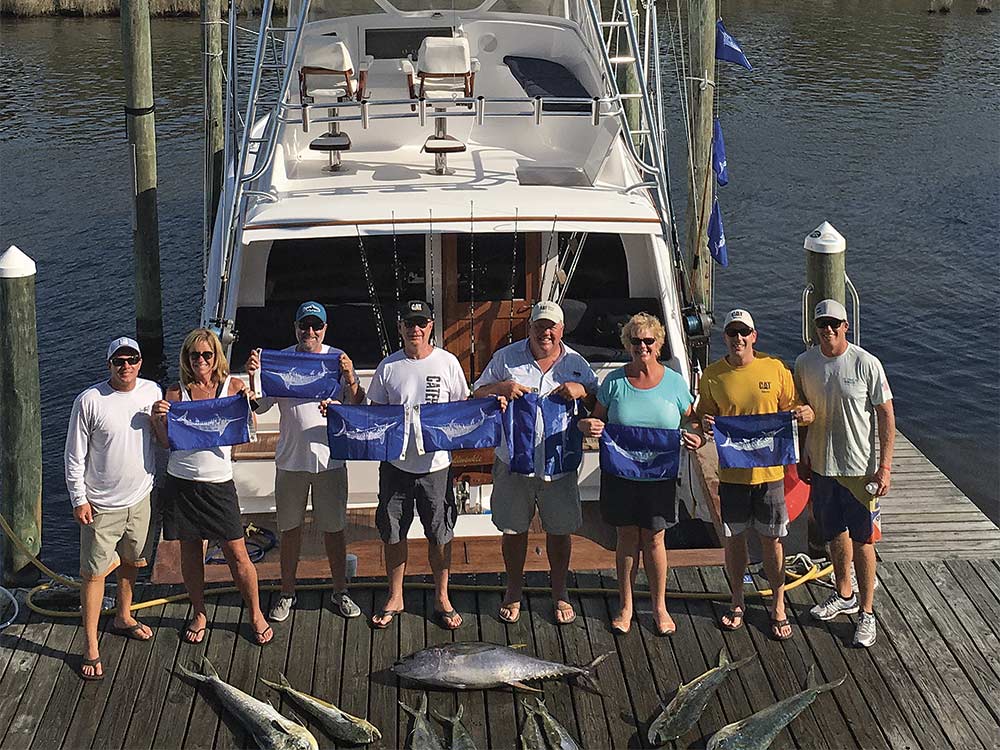
M: What has been your favorite day on the water recently?
We took Fitch up to the Chesapeake Bay last summer for a week, in and out of a bunch of small ports all the way up to St. Michaels on the eastern shore, and then back to Virginia Beach. We fished our way back to Oregon Inlet, then home to Morehead City. I had never been up on the Chesapeake before, and it’s gorgeous. It’s a huge body of water. We had perfect boating weather and just had a great time as a family. In fact, that was also the longest trip on this boat so far.
Read our profile of Jarrett Bay founder and president Randy Ramsey.
M: What’s the best part about living on the Crystal Coast?
We have easy access to some of the best boating and fishing in the world. From here, we can run to the Outer Banks or we can head to the Big Rock. It’s a terrific place to live and work, especially if you’re a fisherman.
